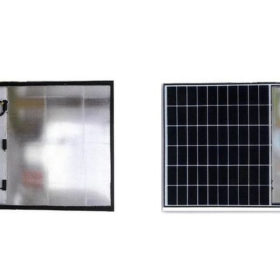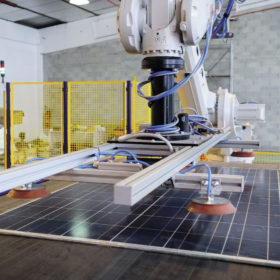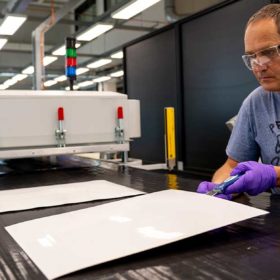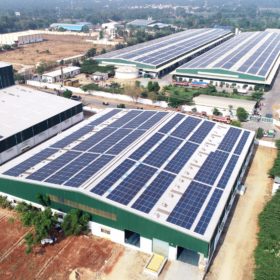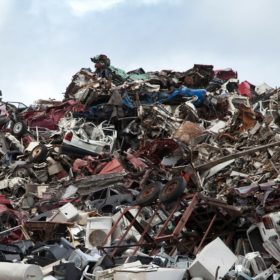Attero launches e-waste consumer take-back platform
Attero, India’s largest e-waste recycler and the world’s largest li-ion battery recycling company, has launched an integrated electronic waste (e-waste) consumer take-back platform– Selsmart. Through Selsmart, it targets an annual recurring revenue of INR 1,000 crore by the third year with e-waste collection of 140,000 metric tonnes.
Water jet tech to recover glass from end-of-life solar panels
Japan’s Shintora Kosan has developed a novel water jet technology to recover glass from end-of-life PV modules. It says it can pulverize the solar cells and the backsheets without damaging the glass.
Battery energy storage in 2022
Battery swapping, solid-state batteries, second-life batteries, evolution from lithium to novel chemistries, and Cloud-based battery management system were the key trends in battery energy storage during the year.
Attero to invest $72.4 million in setting up ‘world’s most advanced’ Li-ion battery recycling plant in Telangana
The company already has a state-of-the-art lithium battery recycling plant in Roorkee, Uttarakhand, with a recovery efficiency of more than 98% across various battery materials. It said the new plant in Telangana will increase its Li-ion battery recycling capacity to 19,500 MT by the end of 2023 from the current 4,500 MT.
Recycling key to solar sustainability
A new study of the environmental impacts of renewable energy finds significant opportunities for solar to reduce its impacts in various categories, including human health, resource depletion, and environmental damage. The study notes in particular that more work is needed to establish a comprehensive reuse and recycling network for end-of-life PV products.
Recyclable, back-contact solar panel from the Netherlands
Conceived by a Dutch consortium, according to Design for Recycling guidelines, the panel is being developed with two different encapsulants, one for the front of the module, which joins the glass and cells together; and a slightly different formulation for the back of the module, which attaches cells and backsheet together.
Hydromet to set up lithium-ion battery recycling plant in Gujarat
The Gujarat-based extractive metallurgy technology solutions provider will set up a 1,000 tonnes per annum (TPA) lithium-ion battery recycling plant, primarily based on the hydrometallurgy process developed in-house. It plans two more such facilities, taking the overall capacity to 10,000 TPA.
Self-assessment tool for renewable energy action
The Portal for Renewable Energy Action Assessment Metrics is an online rating system which enables businesses to self-assess their renewable energy consumption.
Government to fund innovations in solar and battery storage waste management
The Department of Science & Technology (DST) under India’s Ministry Of Science & Technology seeks to fund promising R&D projects in solar panel and battery storage waste disposal and recycling. Call for proposals closes on November 15.
IIT researchers consider fate of end-of-life solar modules
Scientists at the Indian Institute of Technology in New Delhi have taken a close look at the potential impact of growing volumes of PV waste and conducted surveys which suggest a lot more work is needed from manufacturers and policymakers to develop management systems for end-of-life PV products.

